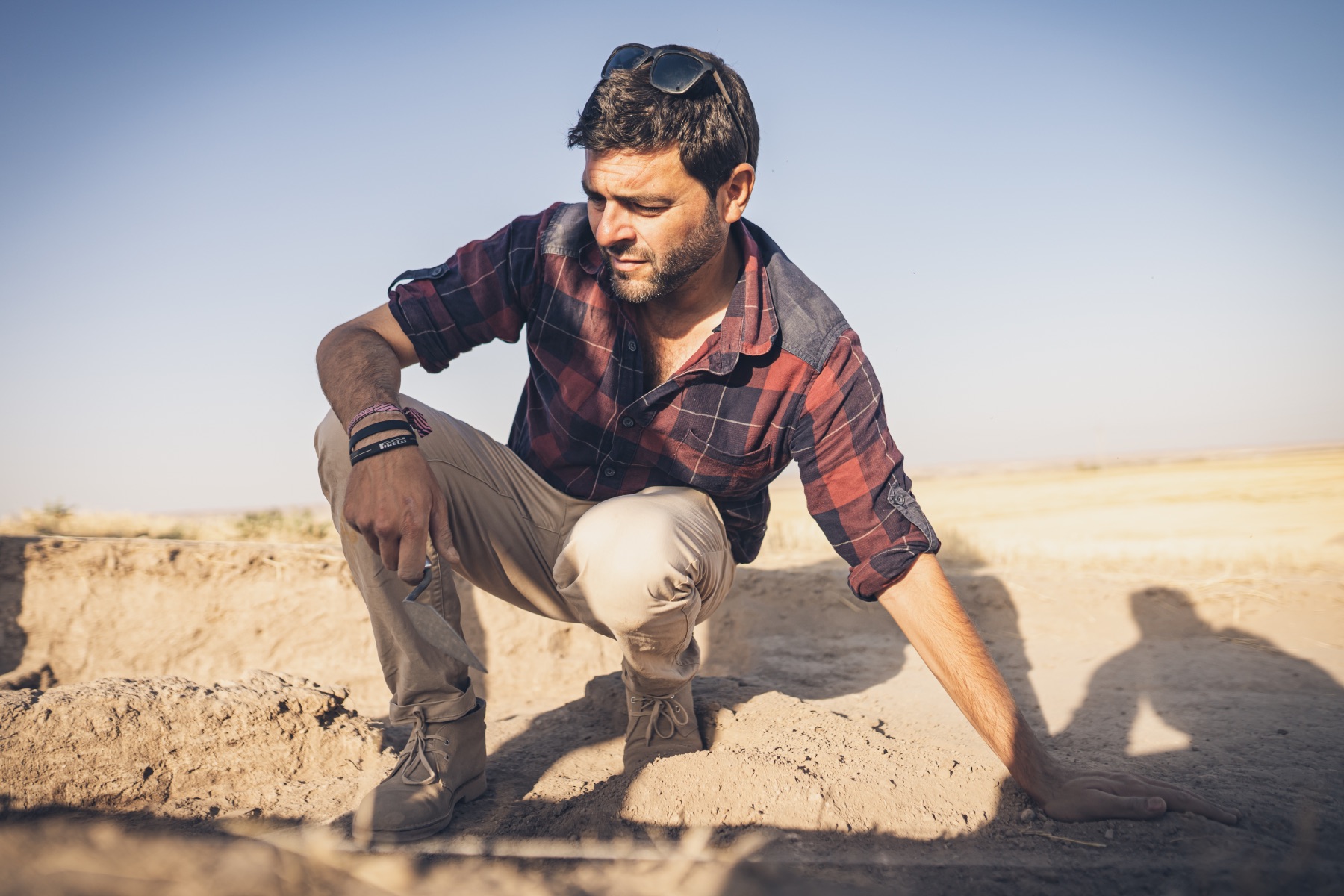Rocco Palermo

Contact
Department/Subdepartment
Education
Ph.D. (University of Naples Federico II, Italy / Université de Paris I Panthéon-Sorbonne, France)
Areas of Focus
Ancient Empires, Archaeology of South-West Asia from the Iron Age to the Roman Period, Landscape Archaeology, GIS and Spatial Analysis in Archaeology, Pottery Studies, Fieldwork Methodologies and Techniques, Drones in Archaeology.
Biography
I am an archaeologist who examines the long-term human-environment interactions embodied in the spatial organization of large-scale, global empires, with a focus on South-West Asia from the Iron Age to the Roman period. My research draws on different sets of data: from survey records to excavation evidence, from GIS-based analysis to paleo-environmental data and to historical and textual documents. I specifically focus on the role of rural and non-urban communities within the far-flung world of pre-modern empires.
- From 2021 to 2023 I was a Researcher (RTD, in Italy) at the University of Pisa, where I investigated the correlation between mutated environmental condition and settlement transformations in South-West Asia in the Hellenistic and Roman period.
- From 2017 to 2021 I was a Postdoctoral Researcher at the University of Groningen (The Netherlands) and PI of the project Beyond the Rivers of Babylon: Settlements and Landscapes in Hellenistic Mesopotamia, funded by the Netherlands Organization for Scientific Research (NWO).
I have been involved in, co-directed, and directed several archaeological projects in Italy, Syria, Turkey, Jordan, Oman, Iraq, and Arctic Canada.
Major fieldwork activities include:
- Since 2022 I am the Director of the Girdi Matrab Archaeological Project (GMAP) in the plain of Erbil, Iraqi Kurdistan. This is a unique site whose occupation spans from the Prehistory (Late Chalcolithic Period) to the Roman Empire. Particularly, Girdi Matrab (“the dusty mound” in Kurdish) was intensively settled during the Hellenistic and Parthian period, thus representing the perfect case for the investigation of the response – or lack thereof – rural communities of Mesopotamia to imperial transformation through time.
To explore more:
Project Website
Instagram
Twitter
- Until 2022 I was also the Associate Director of the Erbil Plain Archaeological Survey, a Harvard-based project directed by Prof. Jason Ur (Harvard University). The project aims at reconstructing the history of this part of Mesopotamia through a landscape-archaeology approach, with a specific focus on the urbanization practices in the Early Bronze Age, the physical modification of the area during the Neo-Assyrian period, and the consequent re-organization of the settled space in the Hellenistic, Parthian, Roman, and Sasanian-early Islamic phases.
- From 2012 to 2018 I was a member of the Land of Nineveh Archaeological Project (Iraqi Kurdistan), a University of Udine (Italy) -led project that aimed at mapping the hinterland of the Assyrian capital of Nineveh through means of field walking survey. I was a surveyor and pottery expert for the Hellenistic, Roman, and Parthian-Sasanian phases.
- From 2003 to 2010 I was a member and trench supervisor for the Italian Archaeological Project at Tell Barri (Syria), where I supervised and directed the excavation and the ceramic analysis of the Roman and Parthian periods.
- The application and testing of newly established survey and excavation techniques brought me to also investigate regions and time periods far from my core area of expertise. I used drones and state-of-the-art techniques to map the Inuit and Thule communities of the Uglit island in Nunavut, Arctic Canada (thanks to the collaboration with the Arctic Centre at the University of Groningen).
My first book, On the Edge of Empires. North Mesopotamia during the Roman Period, was published by Routledge in 2019.